How to justify the cost of ERP software
Is it time now to implement a new ERP? Or, maybe you want to upgrade the ERP your business uses today? You’re going to need to justify spending the boss’ money, and make a business case for ERP so how about we look at a few considerations?
ERP will help react to demand changes
Is your revenue and sales forecast just a little off from actual? Of course it is! Forecasts, by definition, are wrong. A good ERP balances supplies and demands continuously and suggests changes to purchase orders and production schedules. Your forecast called for sales of 100 units in March and one customer just placed an order for 150 units. ERP will provide information necessary to make a decision: can you accept that order in full or should you reply that multiple deliveries would be required? What about orders from other customers?
ERP helps with decisions when there is variation in your supplies too. Your supplier sent an email this morning to let you know his delivery scheduled next week will be delayed by ten days. Can you reschedule production and still meet your customer demands? Which customer orders might be delayed and how can you minimize the impact?
What was the cost of the last customer order you missed? How much overtime was required to stay on schedule last month? There are hard and soft costs related to supply and demand variability that ERP will help reduce your future expenses.
ERP will help increase asset turnover
Inventory is a significant asset in many businesses. ERP can help you track at the item level which products are moving and which have become stagnant. You can analyze inventory by categories and in total, and aim to optimize your inventory level.
Accounts receivable is another typically large asset. The accounting module within ERP allows you to monitor which customers are paying and at what rate. This one has not paid in three months, is it time for a phone call?
Another customer pays regularly in 45 days when your terms call for a 30-day payment. Would they improve if you offered a payment discount? Would such a discount improve your bottom line?
Return on assets and return on investments are key measures of profitability. ERP gives accuracy in the levels of your assets and investments and will help you make the best choices for your business. What is the value to you?
ERP gives you real-time access to your data
Look around your business and count the number of spreadsheets produced every day. Add up the cost to design each one individually. Think about the cost of confusion when two spreadsheets analyzed similar data in different ways. Which one, if either, was correct? You could be making decisions today based on yesterday’s data rather than on today’s real-time information.
ERP includes business information tools that allow dashboards to present precisely the information required right now to make optimal choices. The same BI tools are ready to use for ad hoc analyses whenever they are needed. You will gain value from access to your data in real time.
There are ERP costs to consider
ERP will cost money to purchase the software and get it implemented and all the users trained. You will certainly have ongoing costs for support and maintenance of the software and infrastructure. It is up to you to show that the value gained is sufficient to justify the cost of your ERP system.
Free white paper
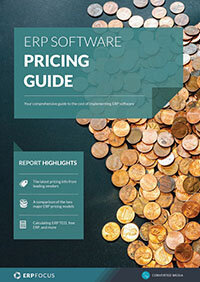
ERP Software Pricing Guide
Get the latest pricing information on over 80 popular ERP systems, and learn how to budget for your ERP project in our free guide
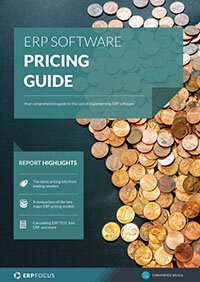
Featured white papers
-

ERP Software Pricing Guide
Get the latest pricing information on over 80 popular ERP systems, and learn how to budget for your ERP project in our free guide
Download -
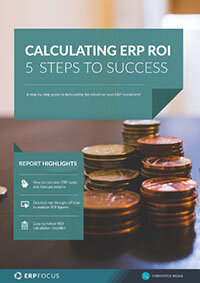
Calculating ERP ROI: 5 steps to success
Calculate your new ERP's financial benefits with this comprehensive guide
Download -
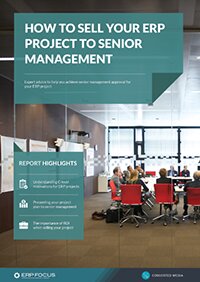
How to sell your ERP project to senior management
Expert advice to help you achieve approval and funding for your ERP project
Download
Related articles
-
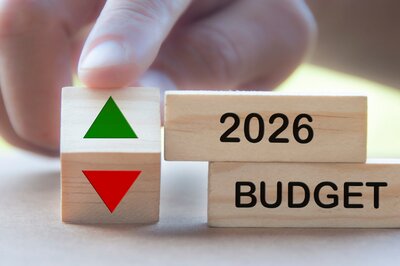
How much does ERP cost? (Free ERP cost and budget guide)
How much does an ERP system cost in 2025? Everything you need to make an ERP software budget
-

Secret KPI: Why Your ERP Implementation Team Matters More Than Software
Learn how Godlan ensures successful ERP implementation for manufacturers with proven strategies &...
-

5 ERP pricing definitions you need to understand
Have you mastered the ERP pricing lexicon yet? Getting to grips with these five definitions is a ...

